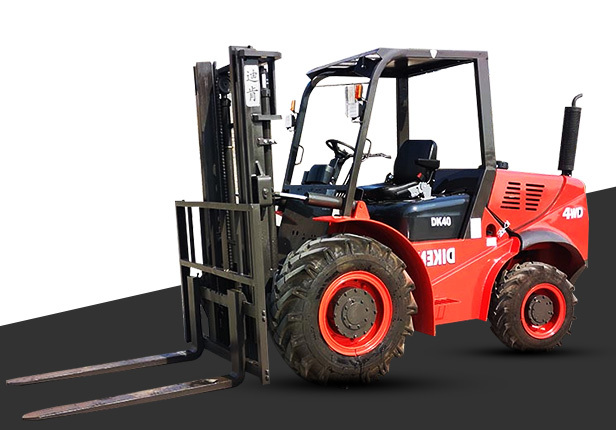Diken news
Essential Maintenance Tips for Your Rough Terrain Forklift
Release time: 2025-07-28
Essential Maintenance Tips for Your Rough Terrain Forklift
Introduction to Rough Terrain Forklifts
Rough terrain forklifts are indispensable in construction and outdoor applications, offering enhanced versatility and power over uneven terrains. Maintaining these robust machines is crucial not just for operational efficiency but also for safety and longevity. In this article, we will delve into **essential maintenance tips** that every owner should follow to ensure their rough terrain forklift remains in peak condition.
Understanding the Importance of Forklift Maintenance
Regular maintenance of your rough terrain forklift is vital for several reasons:
1. **Safety**: Well-maintained forklifts reduce the risk of accidents and injuries on-site.
2. **Operational Efficiency**: Regular checks and servicing minimize downtime, ensuring your operations run smoothly.
3. **Cost Savings**: Preventive maintenance helps avoid costly repairs and extends the lifespan of your equipment.
In this guide, we will cover daily, weekly, monthly, and yearly maintenance checklists, providing detailed insights into each aspect of upkeep.
Daily Maintenance Checklist for Rough Terrain Forklifts
A solid daily maintenance routine can significantly impact your forklift's performance. Here’s what you should check every day:
1. Visual Inspection
Start with a thorough inspection of the forklift for any obvious signs of damage. Look for:
- **Cracks or leaks** in the hydraulic system.
- **Tire condition**: Ensure tires are not worn down or flat.
- **Body damage**, such as dents or corrosion.
2. Fluid Levels
Checking the following fluid levels is essential for smooth operation:
- **Engine Oil**: Ensure it’s at the proper level and check for contaminants.
- **Coolant**: Verify that the coolant levels are adequate for optimal engine performance.
- **Hydraulic Fluid**: Check for the appropriate level as well as any signs of leakage.
3. Battery Health
Inspect the battery for any corrosion on the terminals and ensure that it is securely fastened. A well-maintained battery ensures reliable starting and operation.
4. Safety Equipment Check
Verify that all safety equipment, such as seat belts, lights, and horns, are functioning correctly. Safety mechanisms are crucial for reducing workplace accidents.
Weekly Maintenance Essentials
In addition to daily checks, a weekly maintenance routine reinforces the longevity of your forklift.
1. Tire Inspection and Air Pressure Check
Inspect the tires for wear and ensure they are inflated to the manufacturer's specifications. Proper tire maintenance enhances traction and reduces the risk of accidents.
2. Cleaning the Forklift
A clean machine is less likely to develop issues. Wash the forklift to remove dirt, grime, and debris, focusing particularly on the chassis and hydraulic components.
3. Inspecting Controls and Instruments
Make sure that all controls, levers, and instruments are functioning correctly. Test the brakes, steering, and other operational systems to ensure responsiveness.
Monthly Maintenance Activities
Monthly checks are more in-depth and focus on the systems that require regular attention.
1. Lubrication of Moving Parts
Lubricate all moving parts, including chains and pivot points, according to the manufacturer’s recommendations. This helps prevent wear and tear and reduces friction.
2. Hydraulic System Check
Examine the hydraulic hoses for signs of wear or damage. Replace any hoses if you notice fraying or leaks, as these can lead to hydraulic failures.
3. Battery Water Level Check
For lead-acid batteries, check the water levels and fill with distilled water if necessary. This is crucial for maintaining battery performance and longevity.
Seasonal Maintenance Strategies
As seasons change, so do the environmental conditions that can affect your forklift's performance. It’s essential to adapt your maintenance routine accordingly.
1. Pre-Winter Preparations
Before the winter months, ensure the following steps are taken:
- **Antifreeze Levels**: Verify that antifreeze levels are sufficient to prevent engine freezing.
- **Battery Check**: Cold weather can affect battery performance, so consider a battery warmer if your forklift will be used in extremely low temperatures.
2. Summer Preparations
In hotter months, focus on:
- **Cooling System Maintenance**: Regularly check coolant levels and inspect the radiator for debris.
- **Tire Inspection**: Heat can affect tire pressure, so ensure tires are inflated to the correct levels.
Common Issues and Troubleshooting Tips
Understanding common issues can help in troubleshooting and preventing more significant problems.
1. Engine Won't Start
If your forklift fails to start, check the battery charge, fuel levels, and ignition system. A thorough inspection can often pinpoint the issue.
2. Hydraulic Problems
Loss of power or slow operation can indicate hydraulic issues. Check for leaks and ensure fluid levels are adequate.
3. Uneven Tire Wear
This can result from improper inflation or alignment issues. Regularly check tire alignment and pressure to avoid this problem.
Best Practices for Forklift Operators
Encouraging best practices among operators can significantly enhance the lifespan of your rough terrain forklift.
1. Training on Proper Use
Provide comprehensive training to operators on how to use the forklift correctly. This includes understanding weight limits, proper loading techniques, and safe maneuvering.
2. Regular Operator Feedback
Encourage operators to provide feedback on the machine’s performance. Their insights can help identify maintenance needs before they become serious issues.
Conclusion
Maintaining your rough terrain forklift is not just about adhering to a checklist; it’s about creating a culture of safety and efficiency within your organization. Implementing daily, weekly, monthly, and seasonal maintenance practices can significantly enhance your equipment’s performance and lifespan. By prioritizing these essential maintenance tips, you will not only protect your investment but also ensure a safer and more productive work environment.
Frequently Asked Questions (FAQs)
1. How often should I perform maintenance on my rough terrain forklift?
It’s advisable to perform daily checks, weekly inspections, and more thorough monthly and seasonal maintenance to ensure optimal performance.
2. What are the signs that my forklift needs immediate maintenance?
Signs include unusual noises, leaks, decreased performance, and warning lights on the control panel.
3. Can I perform maintenance on my forklift myself?
While many routine checks can be performed by operators, it's recommended to consult a certified technician for complex issues.
4. How can I extend the lifespan of my rough terrain forklift?
Regular maintenance, operator training, and adhering to manufacturer guidelines can significantly extend the lifespan of your forklift.
5. What are the risks of neglecting forklift maintenance?
Neglecting maintenance can lead to mechanical failures, increased operational costs, safety hazards, and ultimately, reduced productivity.
Keywords: rough terrain forklift









